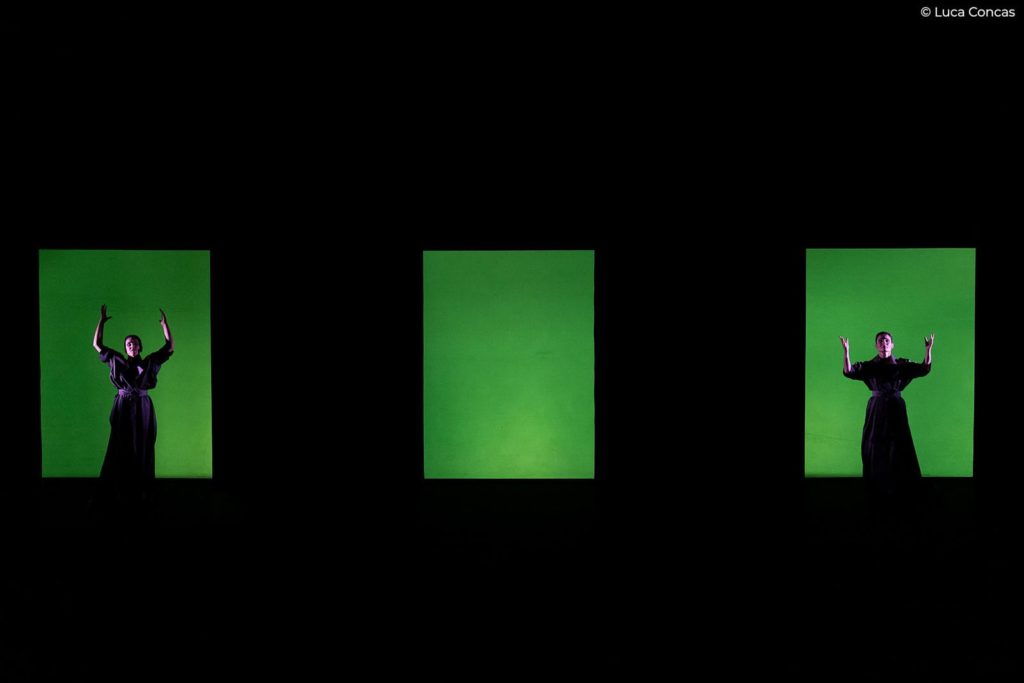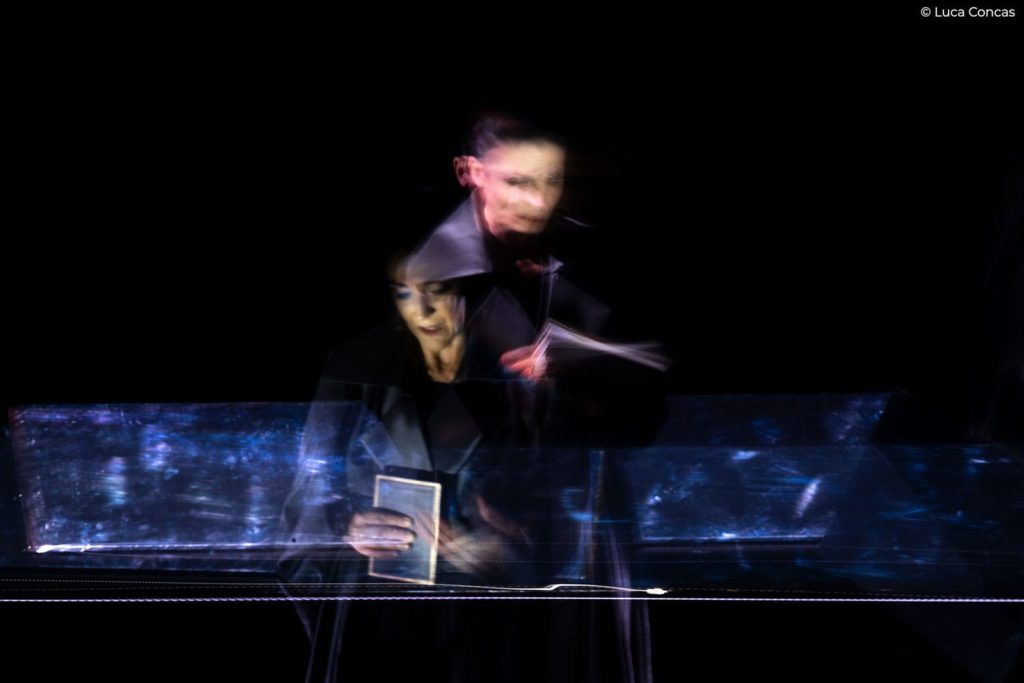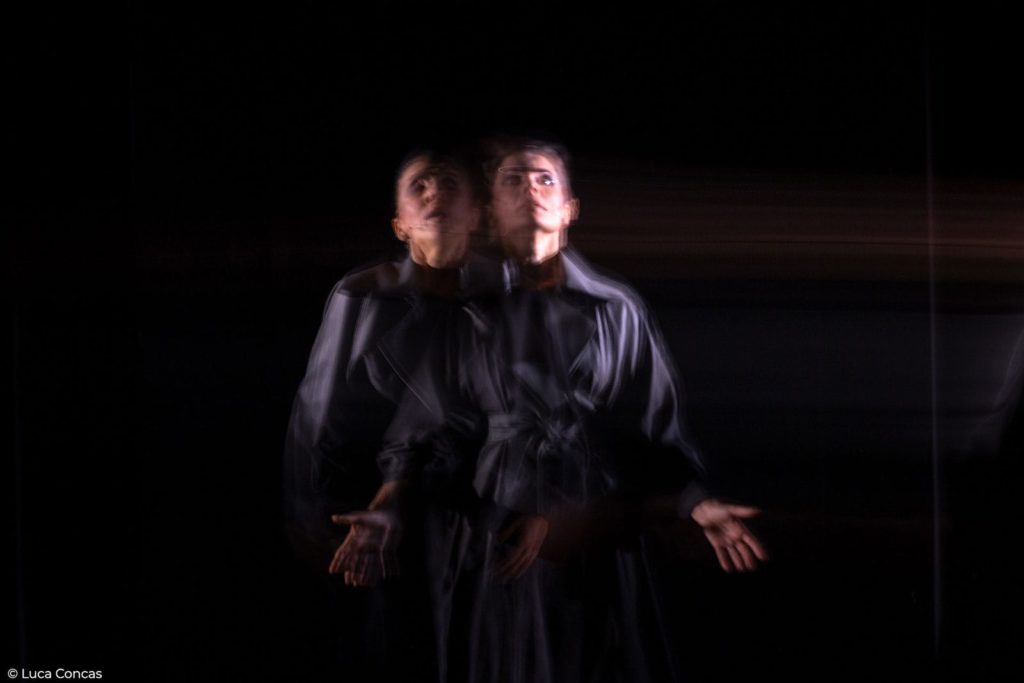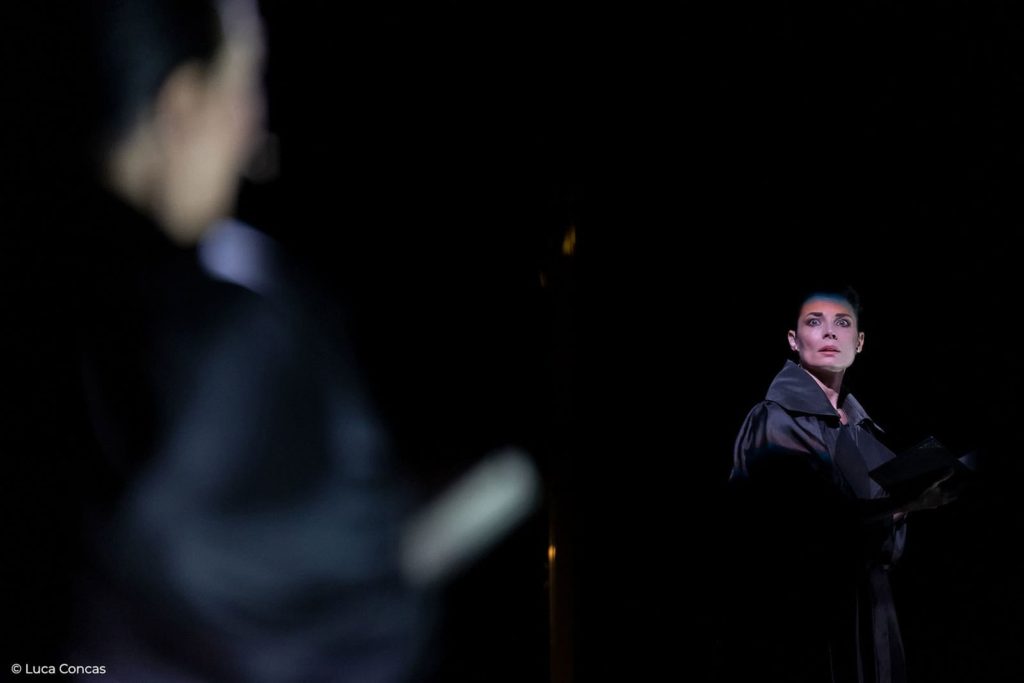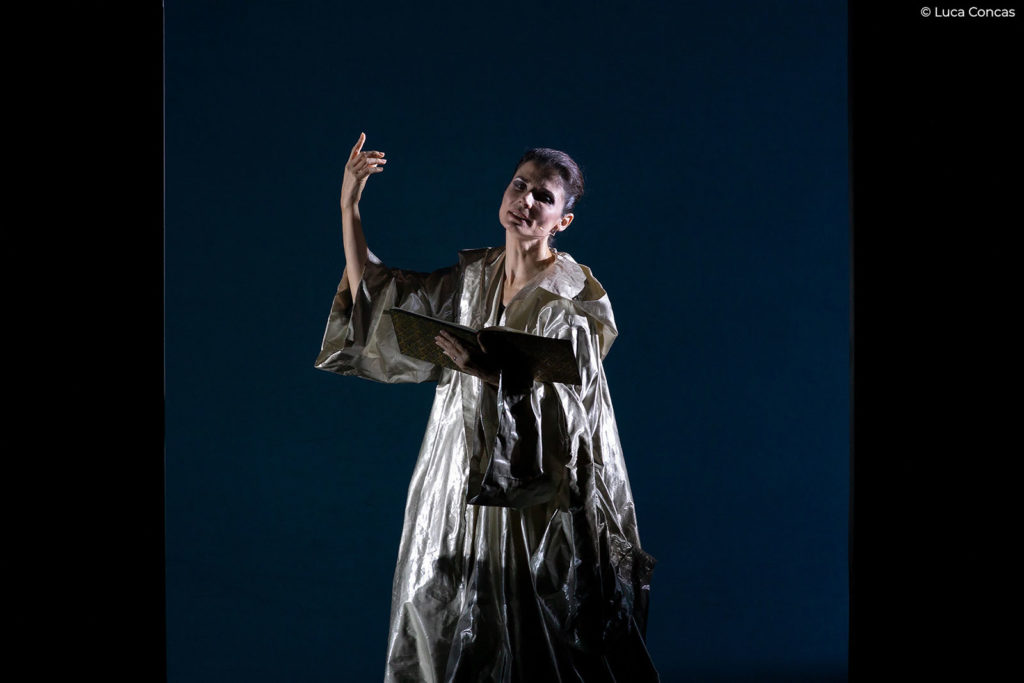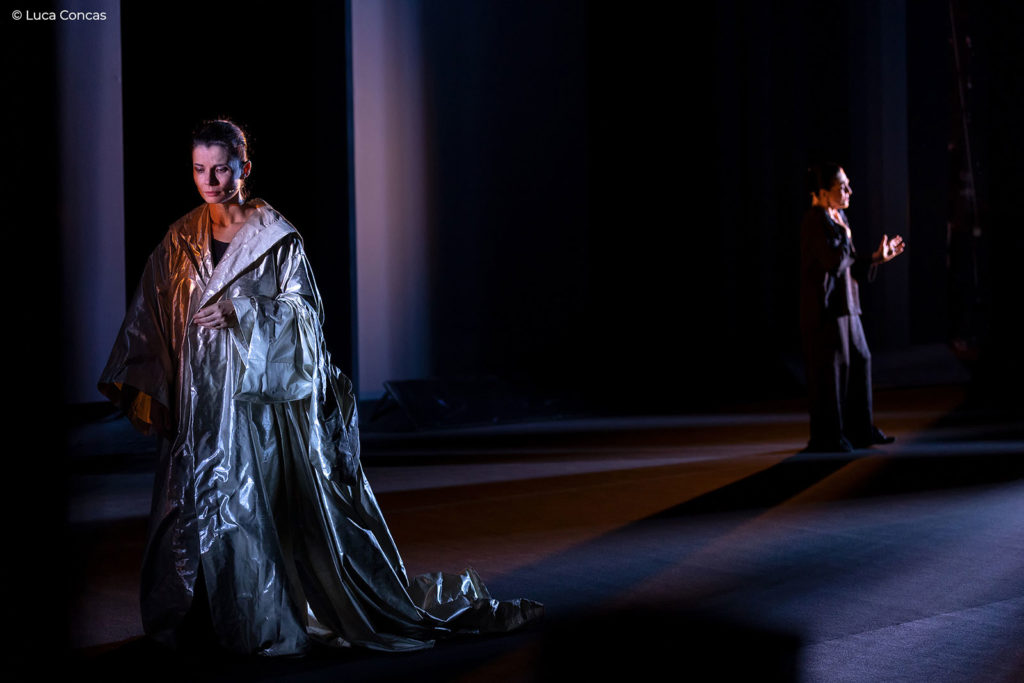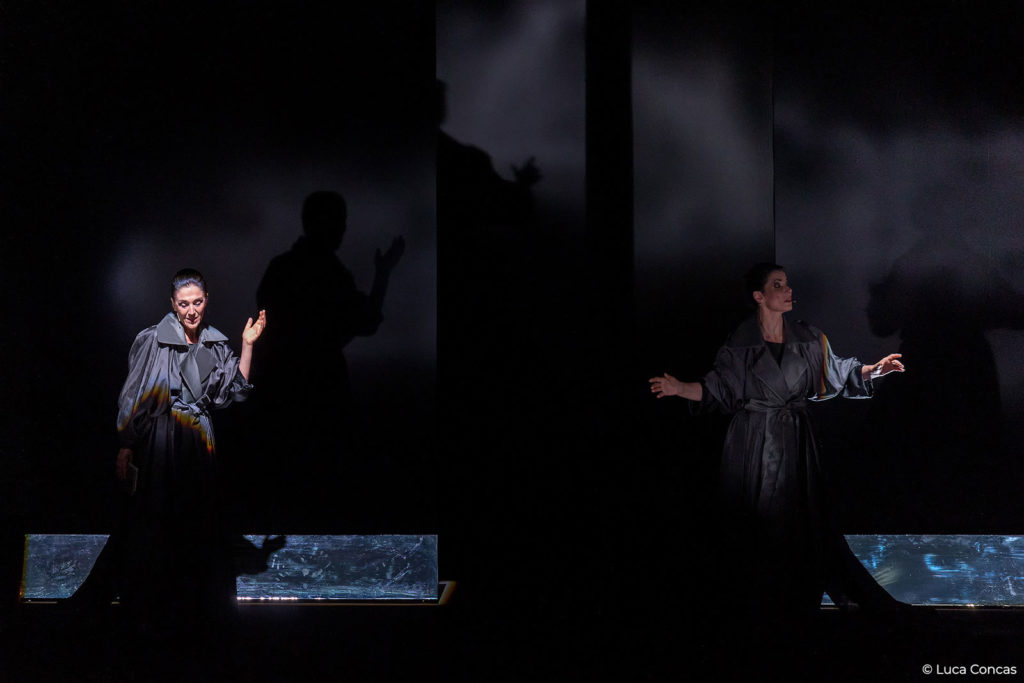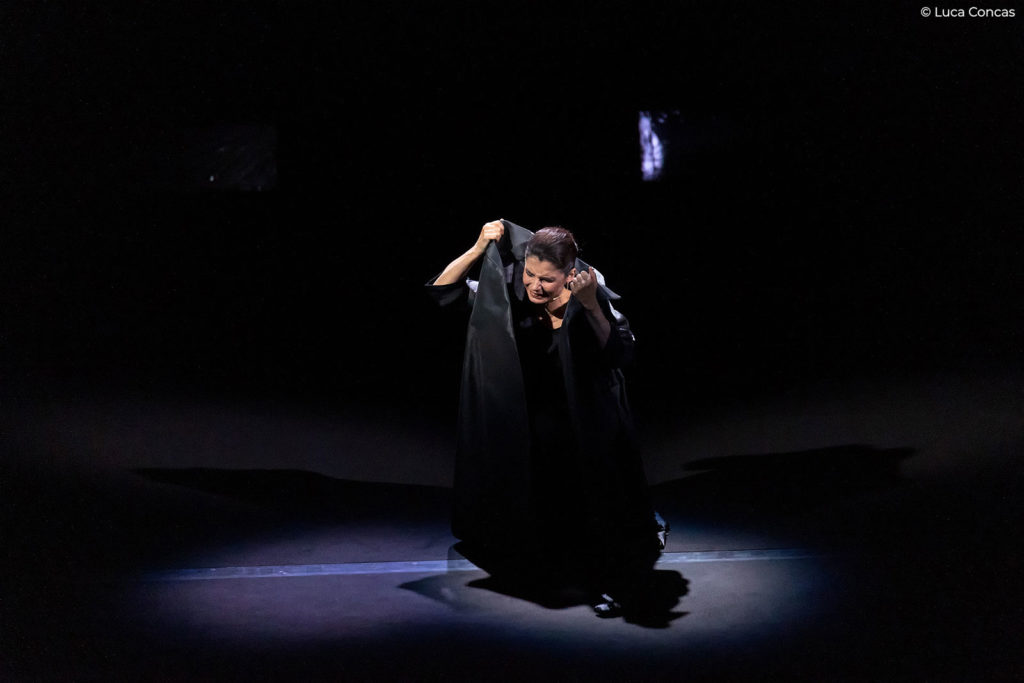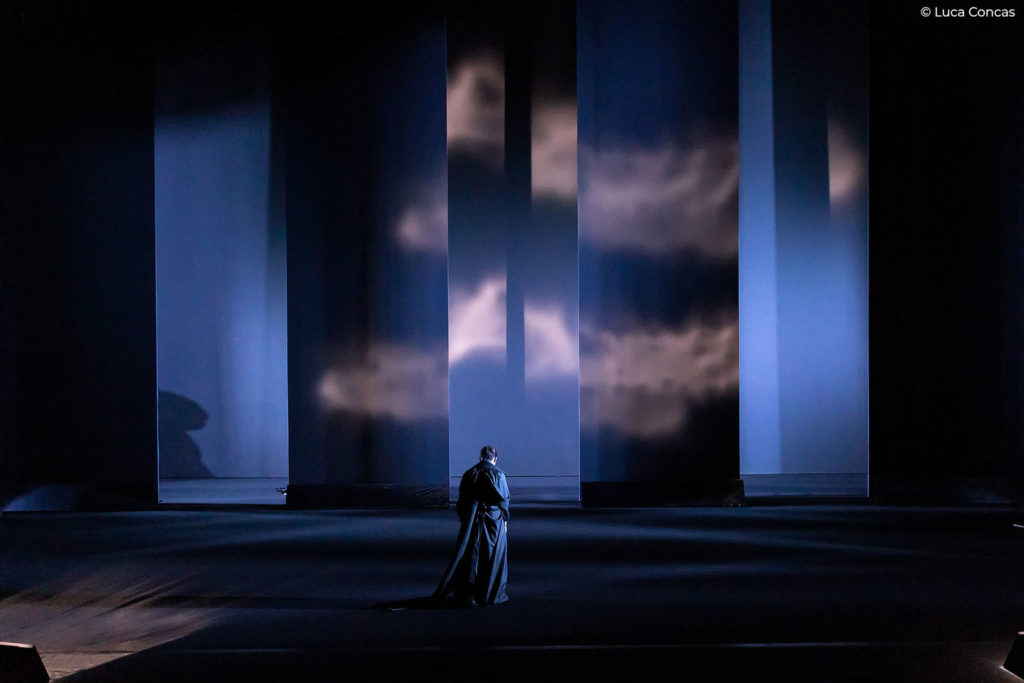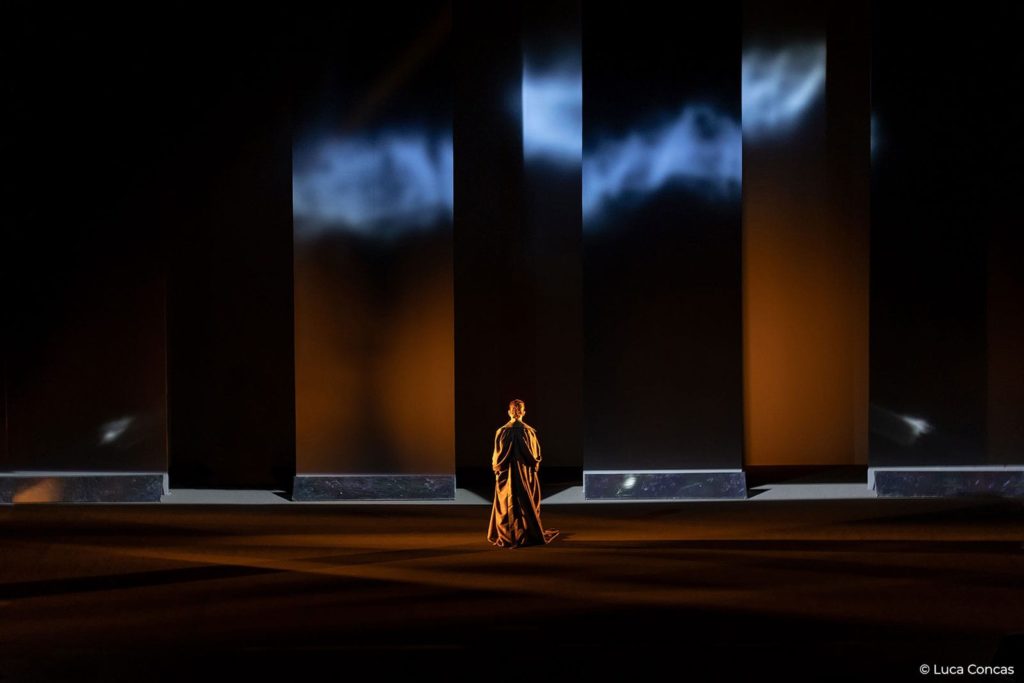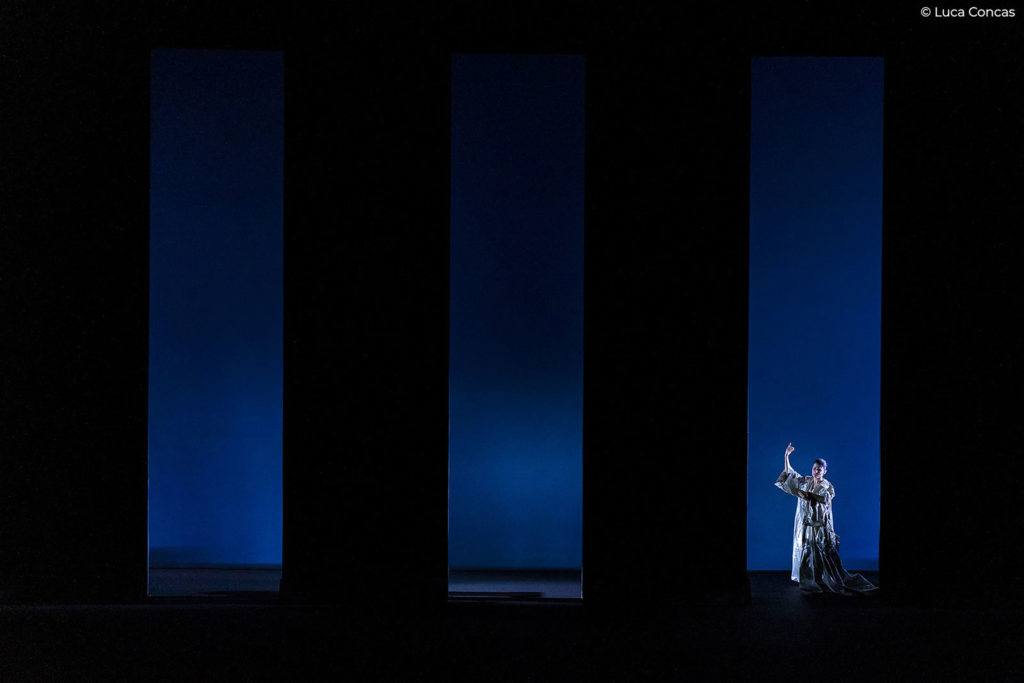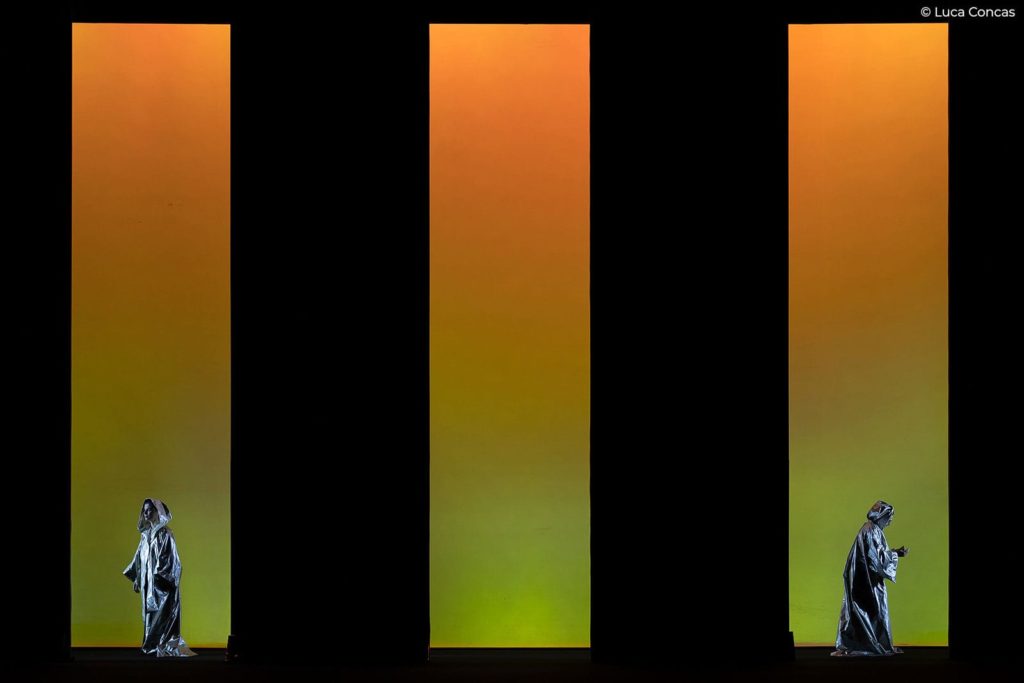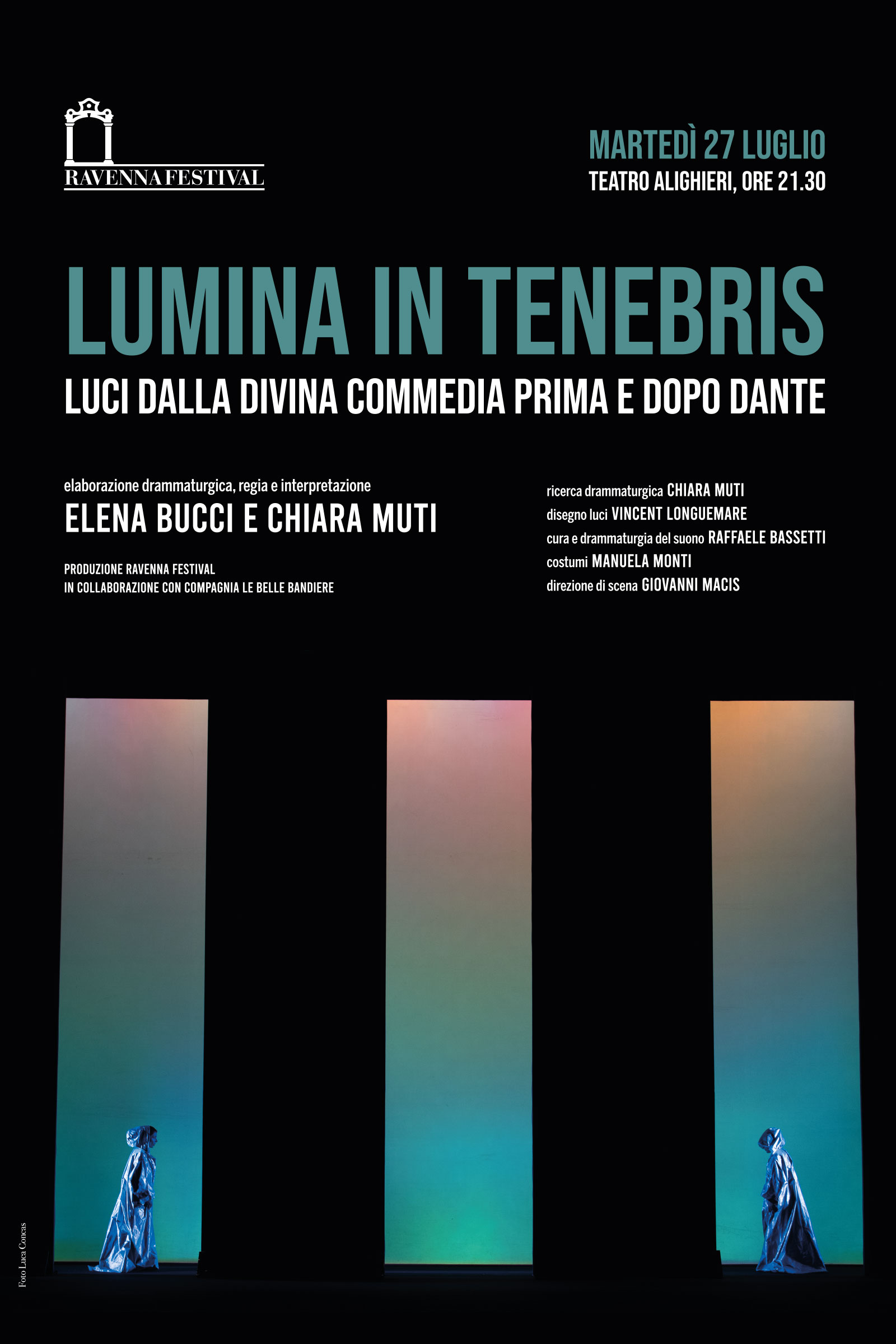
02 Mar Lumina in tenebris
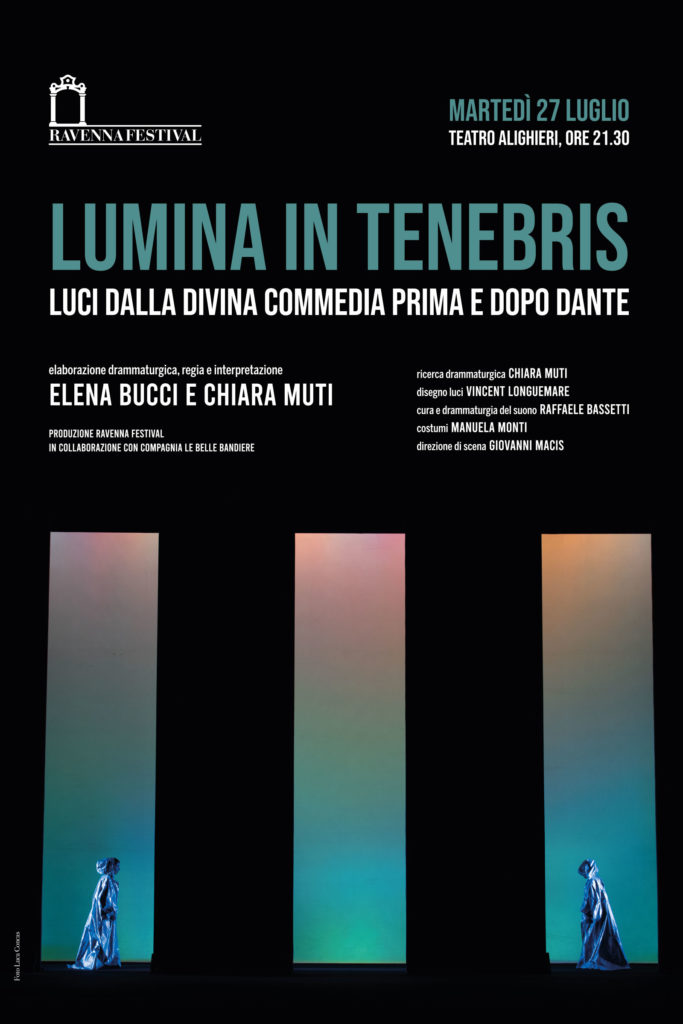
Credits
Dramaturgical development, direction and performance — Elena Bucci and Chiara Muti
Production — Ravenna Festival
In collaboration with the company Le belle bandiere
Dramaturgical research — Chiara Muti
Lighting design — Vincent Longuemare
Sound design and dramaturgy — Raffaele Bassetti
Costumes — Manuela Monti
Stage management — Giovanni Macis
Director’s Notes
What magic makes Dante’s work feel so present and alive? The power of poetry? And what is poetry? Like light and intangible sound, it travels swiftly, following unpredictable paths, moving through time and history, resisting all censorship, exile, dictatorship, blindness. It bounces between different voices, each one a master to the other. From antiquity to the present, it faces the unanswerable questions that make us sisters and brothers: who are we, where are we going, where do we come from?
Where is born the visionary gift of poets, able to express everything we long for but cannot name? The search for knowledge passes through losing oneself in order to find oneself again, transformed. Poetic words shine in the darkness of bewilderment, lumina in tenebris, when one finds oneself “in a dark wood where the straight way was lost” and the only option is to undertake the journey that leads from hell to light.
Dante did not lose his way, also because he was guided by the poets who came before him — just as he, in turn, has nourished those who followed. Perhaps our lost planet, too, is in need of poetry to find healing and courage.
In this year dedicated to Dante, we sought the words of those who were his teachers and those who have looked to him as a guide for inspiration. Beginning with the Bible, we pass through the archetypal journey of Aeneas imagined by his master Virgil, to Boethius imprisoned and consoled by Philosophy, to Milton recounting the loss of Paradise, to Primo Levi clinging to the memory of Dante’s Ulysses in the concentration camp. From Pasolini’s unfinished Divina Mimesis, which grapples with the fears and doubts of the Commedia’s first canto, to Pascal’s existential questions, from Byron’s verses of love, to Balzac’s otherworldly visions, from Rilke’s retelling of Eurydice’s loss to the apparitions of the feminine spirit embodied by Beatrice, who creates and regenerates.
Together, we place ourselves in service to this immense force, imagining a contemporary journey, enchanted by the beauty of so many different voices, united in a chorus that brings light to the mystery of existence.



